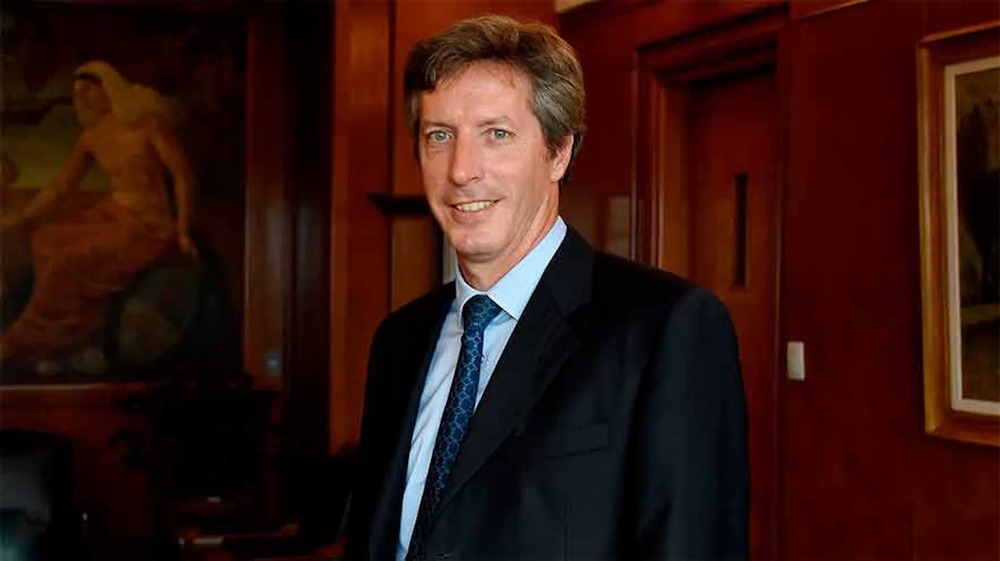President Javier Milei’s senior economic officials indicated on Wednesday their expectation that Argentina’s US$20-billion currency swap with the United States will be concluded within a fortnight. During an event in Washington, Economy Minister Luis Caputo and Central Bank Governor Santiago Bausili expressed optimism regarding Argentina’s economic prospects, emphasizing the robust support the country has garnered from the Trump administration in recent days. “Hopefully very soon we will be able to execute the framework agreement for the swap,” Caputo stated. Bausili confirmed that Argentina and the US Treasury had established a conceptual framework for the US$20-billion facility, a strategic initiative aimed at enhancing liquidity and restoring confidence amid increased market volatility in the lead-up to the October 26 midterm elections.
Bausili indicated that the Milei administration is optimistic about concluding the agreement prior to the elections. Earlier in the day, Treasury Secretary Scott Bessent informed that Argentina could potentially secure up to US$40 billion if a “facility” with private-sector backing is initiated. The plan is described as being “adjacent” to the US government swap line, attracting interest from banks and sovereign wealth funds. “The US government is poised and equipped to engage on multiple fronts,” Caputo stated. The currency swap will assist Argentina in sustaining a stringent monetary policy, leaving “no doubt that we can deal with this,” he added. The comments were made one day following the meeting between Milei, senior Argentine officials, and US President Donald Trump, along with Bessent, at the White House. Washington has reiterated its political and financial backing for Milei’s market-oriented reform agenda. Discussions continue regarding supplementary support initiatives. Caputo and Bausili, previously associated with JP Morgan and Deutsche Bank, were inquired about the potential for additional US support and the position of Washington regarding Argentina’s relationship with China. Discussions are ongoing regarding market interventions, further peso acquisitions, and a potential bilateral trade agreement; however, Caputo indicated that he is not yet at liberty to reveal specifics.
“I don’t think the swap with the US will be the only tool; it will depend on the analysis and economic conditions,” Bausili stated. When questioned about whether any conditions were linked to the swap, Bausili refrained from providing a direct response, instead alluding to earlier remarks from Bessent indicating that Washington does not have concerns regarding Argentina’s current US$18-billion currency swap with the Chinese central bank. Bausili also defended Argentina’s exchange-rate band, which was introduced in April to manage peso volatility during the transition toward a freer float. Certain economists have advocated for accelerating that process following the elections. “In April we transitioned from a crawling peg to a broader band that permits the market to function autonomously, while mitigating extreme fluctuations,” stated the Central Bank chief. “In light of the prevailing political dynamics, we find no justification for adjusting the current regime.” It continues to exhibit consistency and precise calibration. Both officials recognized that Argentine markets and assets were experiencing pre-election market stress, yet they pointed out that similar pressures were observed prior to the elections in 2019 and 2023. Bausili, however, contended that the recent financial tensions stemmed from political uncertainty rather than economic frailty. “We have an economy built on iron fundamentals,” he stated. “Fiscal policy is on course, the Central Bank’s balance sheet has been restored, and inflation is consistently declining.”
Caputo minimized concerns regarding the potential stagnation of reforms in the event that the ruling Libertad Avanza party does not perform well in the midterm elections. “These elections hold significance, yet they are not pivotal for our economic strategy,” he stated. “Our commitment to fiscal discipline, monetary prudence and reform will remain steadfast, irrespective of the outcome.” Caputo observed that Argentina achieved its inaugural fiscal surplus in over a century, following a period of deficits in 124 of the last 130 years. “We achieved fiscal equilibrium through a 15 percent reduction in government spending,” he stated. “For 20 months we’ve maintained a primary surplus.” That serves as the cornerstone of stability. The economy minister cautioned that Argentina needs to steer clear of the “political volatility” that has historically dissuaded investors. He emphasized that stability and policy continuity are crucial for restoring confidence and drawing in foreign direct investment. Caputo emphasized a remarkable increase in foreign investment commitments, noting that Argentina had obtained approximately US$100 billion in financing for new initiatives spanning multiple sectors, such as energy, mining, and technology.
Investor interest is currently at a remarkable level. We have sanctioned a new framework for substantial investments exceeding US$200 million, referred to as Milei’s ‘RIGI’ scheme, and currently, there are approximately US$80 billion in projects that have been announced or are in progress,” he stated. “For decades, Argentina relied on agriculture for its foreign currency,” Caputo continued. “Within four years, the surplus from mining and energy will double that of agriculture.” That represents a fundamental shift. Both officials characterized Argentina’s transformation as a long-term endeavor aimed at establishing it as “the freest and fastest-growing” country “in the next 20 years,” with strategies focused on fostering private-sector investment, deregulation, and international integration. Caputo concluded by expressing gratitude to US officials for their “professionalism and commitment,” characterizing the discussions as a pivotal moment in bilateral relations. “The US is our most powerful ally,” he stated. “This represents a pivotal moment – and we will not squander it.”

